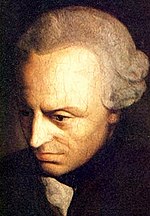User:Torricelli01
| This account has been confirmed by a CheckUser as a sockpuppet of Barryispuzzled (talk · contribs · logs), and has been blocked indefinitely. Please refer to the sockpuppet investigation of the sockpuppeteer, and editing habits or contributions of the sockpuppet for evidence. This policy subsection may be helpful. Account information: block log – contribs – logs – abuse log – CentralAuth |
See Wikipedia:Requests for checkuser/Case/Barryispuzzled
Heroes[edit]
Physics[edit]

The theoretical physicist Albert Einstein, who was confident enough to follow his own star and work out ideas for himself. It is so easy to follow the pack and build on the notions of others although Einstein would have given James Clerk-Maxwell, Hendrik Antoon Lorentz and Ernest Mach some credit for his intellectual development.
I always felt that his scepticism towards the probabilistic interpretation of the quantum theory was his greatest contribution to physics not his achievements in relativity. His philosophy on the nature of light quanta "nowadays every Tom, Dick, or Harry think he knows it but he is mistaken" leaves the pathway open to a radical change in current thinking which more and more physicists are coming to believe is necessary.
As I see it, his legacy is not so much his special relativity theory (which others were close to) nor his general relativity theory (which Hilbert had the equations for) but his philosophical stance.
Philosophy[edit]

Anticipated cognitive psychology by 200 years by postulating that the mind constructed images from incoming sense data and imposed categories of thought on the results to place them in order.
Although he stated in his Refutation of Idealism that there was a world external to our minds ("thing in itself") he believed that nothing could be known about it. This is evidently incorrect because humans could not operate in the world without assuming a world outside their own location. For example, we assume that light approaches the eye from a location external to our minds. Assuming certain properties of light (wave-like) accounts for certain phenomena (interference) and in this sense, although we do not perceive these properties directly, their assumed existence assists in making sense of the world.
In my view, a theory of the mind is required where its cognitive constructions, as they achieve increasing success in ordering phenomena, approach closer to the nature of the "thing in itself".
| This user has a pet cat. |
| This user has read thirty-one of William Shakespeare's plays. |
| BS | This user has a Bachelor of Science degree. |
